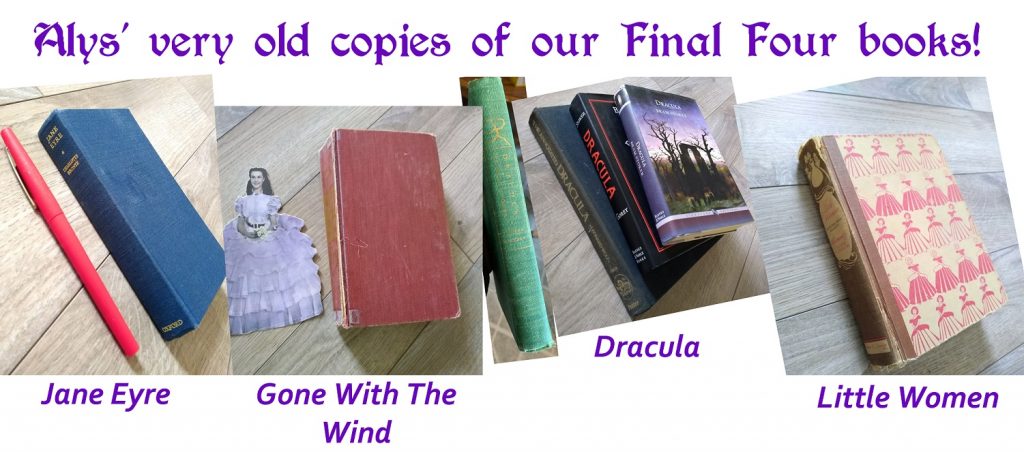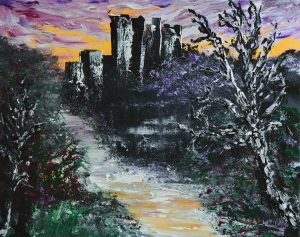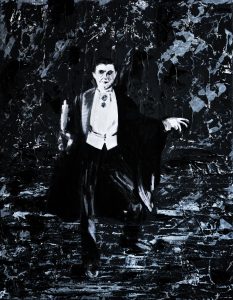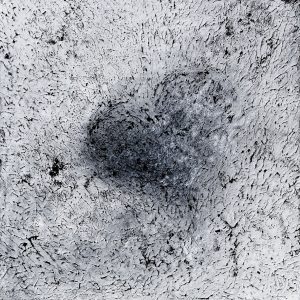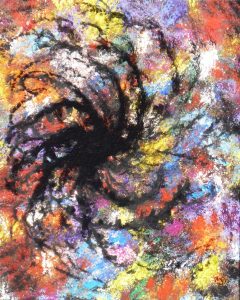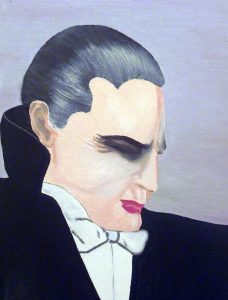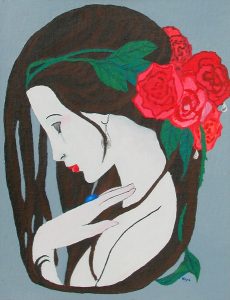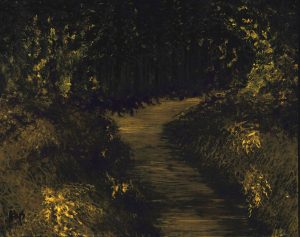Our 6th NICE annual project offers the opportunity to discuss and be (re)inspired by the four books and passages listed below. NICE breathes new life into the classics by encouraging people, high-school age and up, to discuss the works selected each year, and encourages critical thinking and experimenting with creativity (link below to download our annual Creative Submission Form).
2020 6th Annual NICE Books Selections
Jane Eyre by Charlotte Brontë (originally published in 1847)
Gone With The Wind by Margaret Mitchell (originally published in 1936)
Dracula by Bram Stoker (originally published in 1897)
Little Women by Louisa May Alcott (originally published in two volumes in 1868 and 1869)
2020 6th Annual NICE Passages Selections
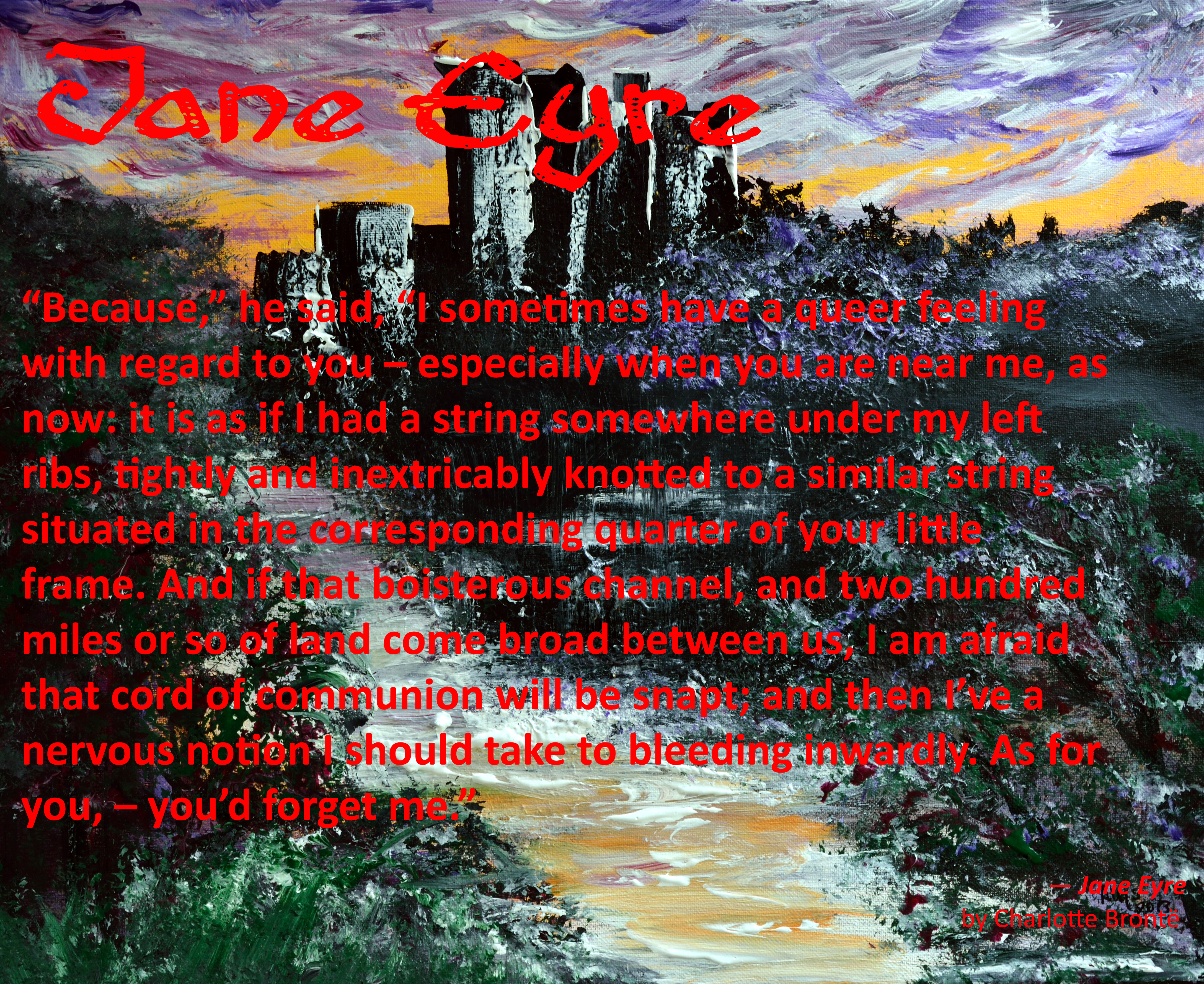
“Because,” he said, “I sometimes have a queer feeling with regard to you – especially when you are near me, as now: it is as if I had a string somewhere under my left ribs, tightly and inextricably knotted to a similar string situated in the corresponding quarter of your little frame. And if that boisterous channel, and two hundred miles or so of land come broad between us, I am afraid that cord of communion will be snapt; and then I’ve a nervous notion I should take to bleeding inwardly. As for you, – you’d forget me.” ― Jane Eyre by Charlotte Brontë, from Chapter 23
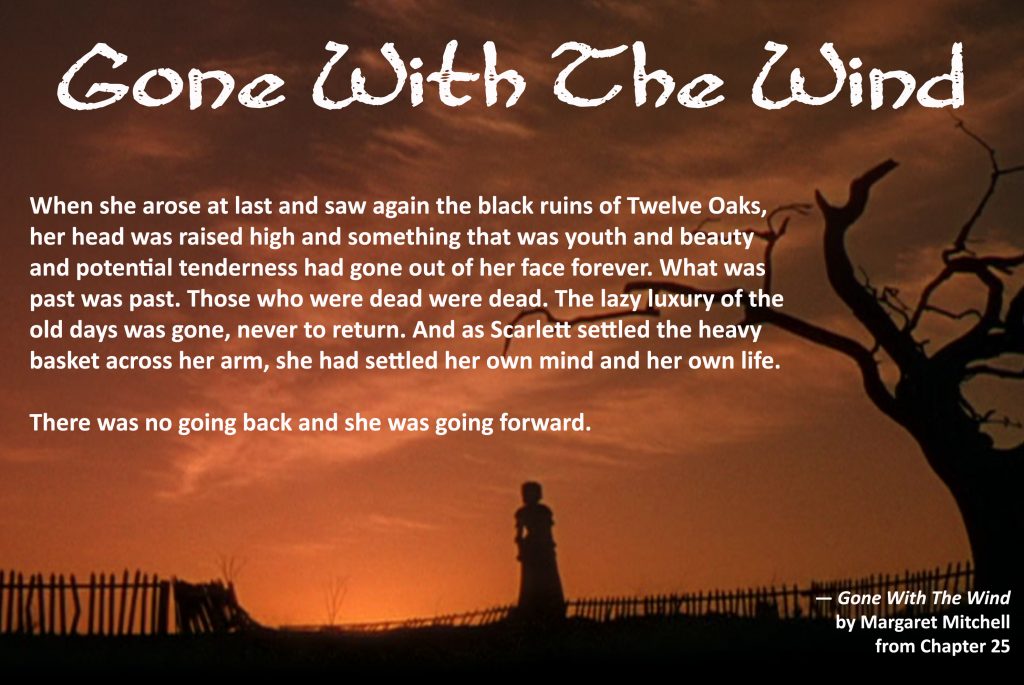
When she arose at last and saw again the black ruins of Twelve Oaks, her head was raised high and something that was youth and beauty and potential tenderness had gone out of her face forever. What was past was past. Those who were dead were dead. The lazy luxury of the old days was gone, never to return. And as Scarlett settled the heavy basket across her arm, she had settled her own mind and her own life.
There was no going back and she was going forward.
― Gone With The Wind by Margaret Mitchell, from Chapter 25
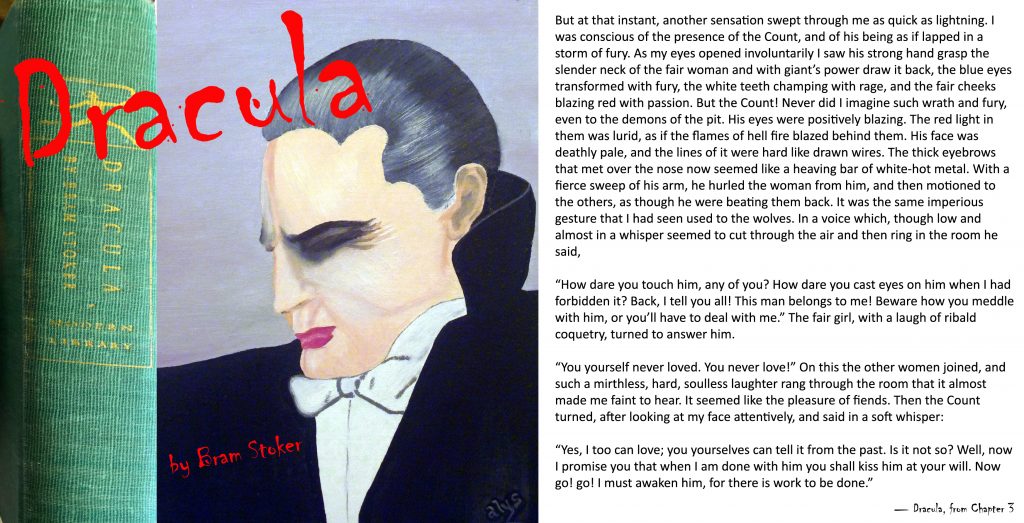
But at that instant, another sensation swept through me as quick as lightning. I was conscious of the presence of the Count, and of his being as if lapped in a storm of fury. As my eyes opened involuntarily I saw his strong hand grasp the slender neck of the fair woman and with giant’s power draw it back, the blue eyes transformed with fury, the white teeth champing with rage, and the fair cheeks blazing red with passion. But the Count! Never did I imagine such wrath and fury, even to the demons of the pit. His eyes were positively blazing. The red light in them was lurid, as if the flames of hell fire blazed behind them. His face was deathly pale, and the lines of it were hard like drawn wires. The thick eyebrows that met over the nose now seemed like a heaving bar of white-hot metal. With a fierce sweep of his arm, he hurled the woman from him, and then motioned to the others, as though he were beating them back. It was the same imperious gesture that I had seen used to the wolves. In a voice which, though low and almost in a whisper seemed to cut through the air and then ring in the room he said,
“How dare you touch him, any of you? How dare you cast eyes on him when I had forbidden it? Back, I tell you all! This man belongs to me! Beware how you meddle with him, or you’ll have to deal with me.” The fair girl, with a laugh of ribald coquetry, turned to answer him.
“You yourself never loved. You never love!” On this the other women joined, and such a mirthless, hard, soulless laughter rang through the room that it almost made me faint to hear. It seemed like the pleasure of fiends. Then the Count turned, after looking at my face attentively, and said in a soft whisper:
“Yes, I too can love; you yourselves can tell it from the past. Is it not so? Well, now I promise you that when I am done with him you shall kiss him at your will. Now go! go! I must awaken him, for there is work to be done.”
— Dracula by Bram Stoker, from Chapter 3
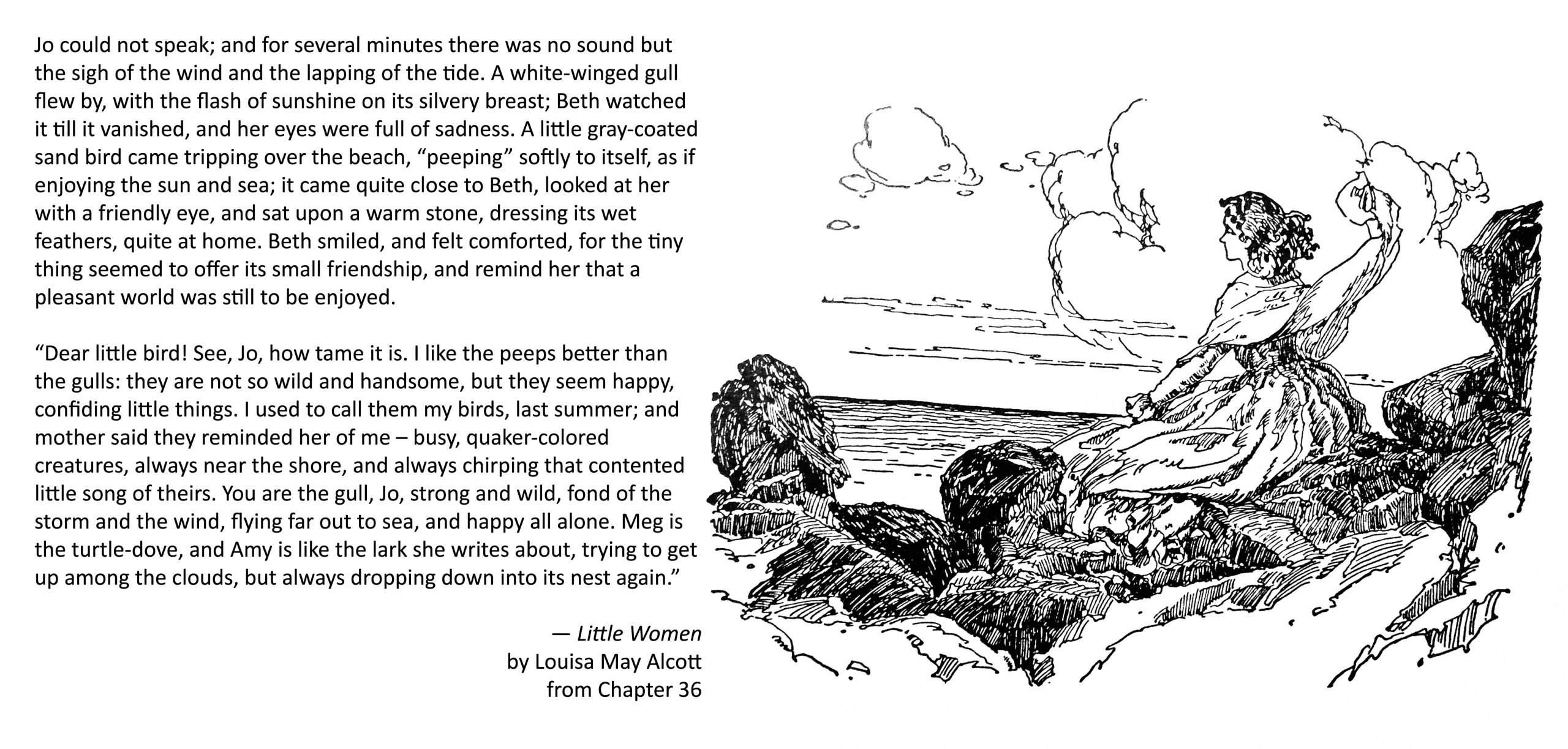
Jo could not speak; and for several minutes there was no sound but the sigh of the wind and the lapping of the tide. A white-winged gull flew by, with the flash of sunshine on its silvery breast; Beth watched it till it vanished, and her eyes were full of sadness. A little gray-coated sand bird came tripping over the beach, “peeping” softly to itself, as if enjoying the sun and sea; it came quite close to Beth, looked at her with a friendly eye, and sat upon a warm stone, dressing its wet feathers, quite at home. Beth smiled, and felt comforted, for the tiny thing seemed to offer its small friendship, and remind her that a pleasant world was still to be enjoyed.
“Dear little bird! See, Jo, how tame it is. I like the peeps better than the gulls: they are not so wild and handsome, but they seem happy, confiding little things. I used to call them my birds, last summer; and mother said they reminded her of me – busy, quaker-colored creatures, always near the shore, and always chirping that contented little song of theirs. You are the gull, Jo, strong and wild, fond of the storm and the wind, flying far out to sea, and happy all alone. Meg is the turtle-dove, and Amy is like the lark she writes about, trying to get up among the clouds, but always dropping down into its nest again.”
— Little Women by Louisa May Alcott, from Chapter 36
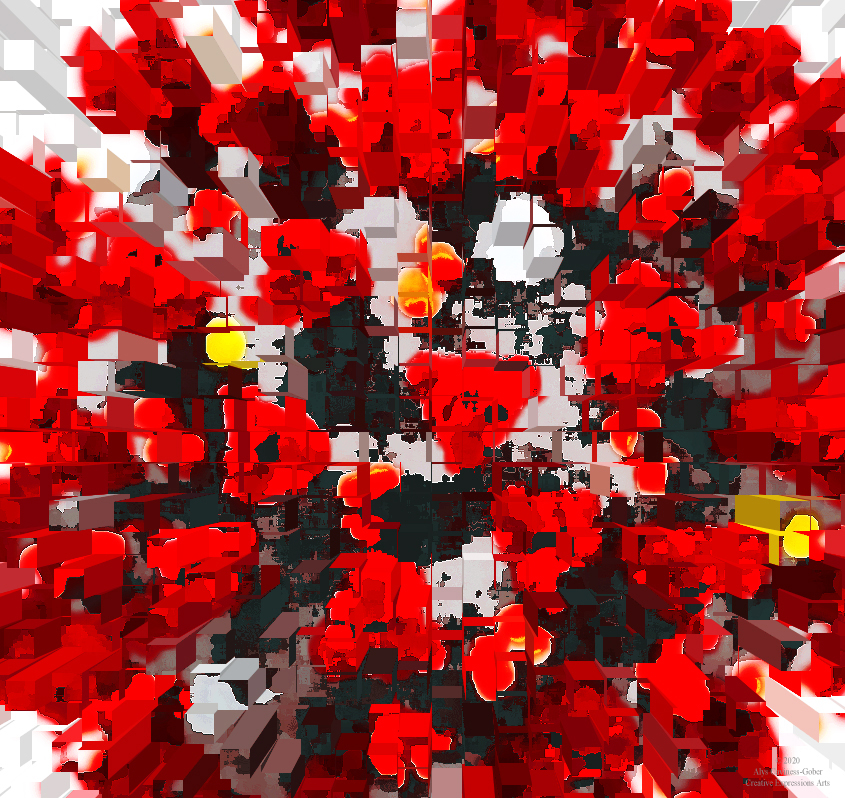
Due to the COVID-19 restrictions, for the first time ever, we’re sharing our behind-the-scenes discussions for selecting the books and passages for our 2020 NICE project. We started with a short list of eight books this year: Jane Eyre, Emma, Gone With The Wind, The Picture of Dorian Gray, Dracula, Little Women, Portrait of Jenny, and The Turn of the Screw. We discussed each book, then select our Final Four Books, then discussed several passages from each book and chose the Final Four Passages (one from each book). Our behind-the-scenes episodes are uploaded each Friday at 4pm. Corresponding short videos can be seen on our YouTube channel.
Content Note: Written works, especially classics and books set in historical time periods, almost always contain problematic content: intolerance, prejudice, discrimination, and racism. This year’s four selected books, Jane Eyre by Charlotte Bronte, Gone With The Wind by Margaret Mitchell, Dracula by Bram Stoker, and Little Women by Louisa May Alcott, all possess elements of prejudice, intolerance, and racism, as well as classism, and violence and domestic abuse.
We’ve recorded several @theroundtable episodes that specifically discuss racism and prejudice in general, and how to address problematic elements in classics and period books. Some of the questions we asked ourselves are: what’s really there, in classic literature? How do we view the book today vs when it was written/the setting? What is the value of reading books with problematic elements? You can listen to those episodes here: Discussions Against Racism.
NICE Podcast episodes:
We had a great time recording 14 episodes recapping our 2020 6th Annual NICE project. Check back every Friday in January and February 2021 for the episodes!
New for 01 January 2021:
New episodes for 08 January 2021:
New episodes for 15 January 2021:
New episodes for 22 January 2021:
New episodes for 29 January 2021:
New episodes for 05 February 2021:
New episode for 12 February 2021:
New episode for 19 February 2021:
Below are our first five discussions about Violence & Domestic Abuse in our four selected NICE books this year.
For a two-in-one episode discussing some statistics and information about Domestic Abuse & Violence, please go to: https://anchor.fm/attheroundtable
These episodes were recorded as background to our upcoming discussions about Domestic Abuse & Violence in our four selected NICE books this year.
The six episodes below focus on various examples of Sex & Sexuality in our for book selections for 2020’s project.
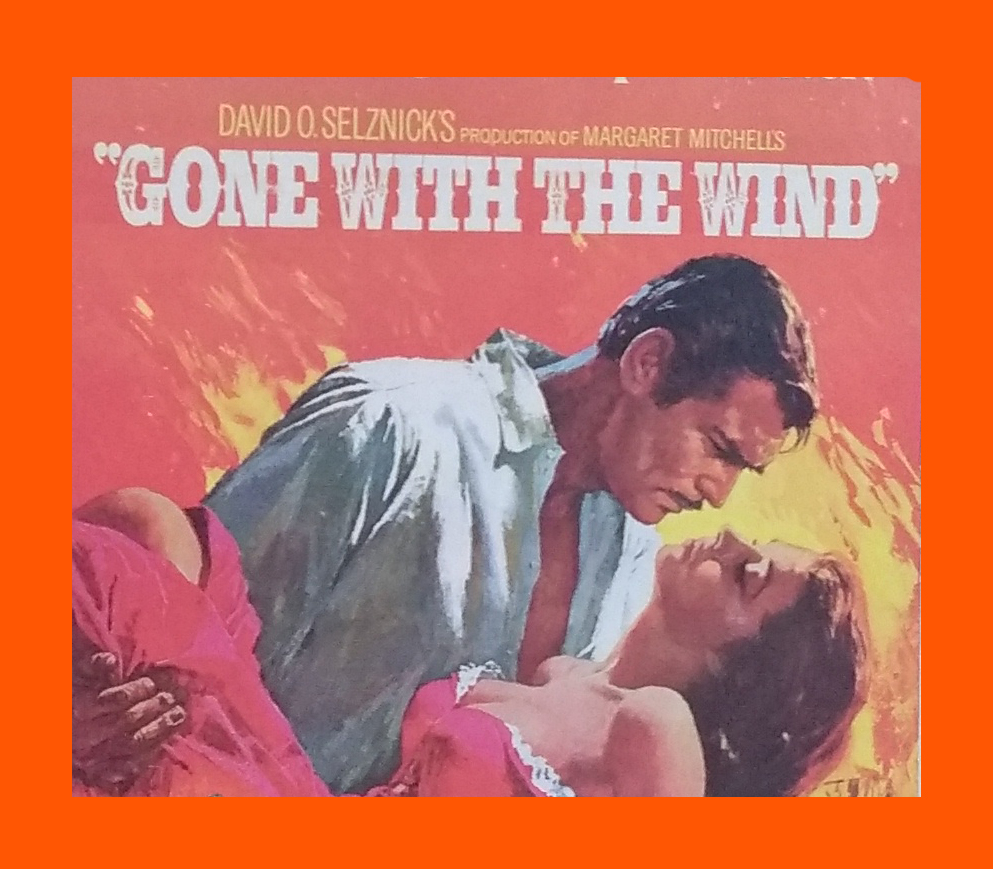
The seven episodes immediately below focus on the various examples of Gender Norms & Roles in our four 2020 book selections.
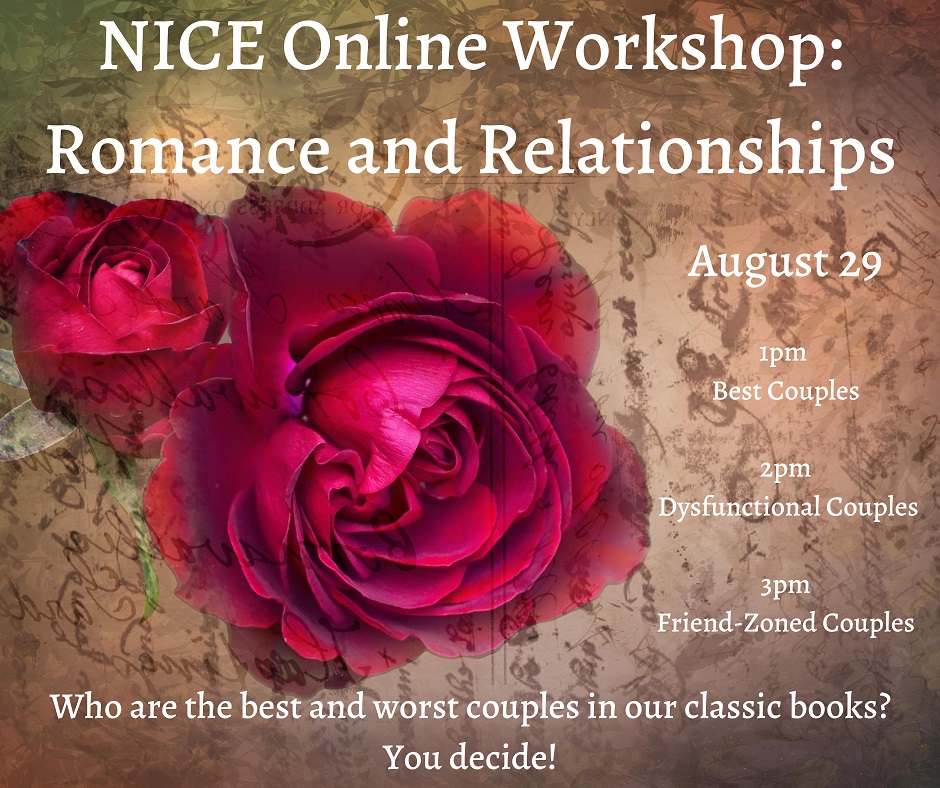
Recently we recorded our first Workshop, consisting of three sessions (via Zoom), where we discussed various Romances & Relationships in our four NICE books:
Time to discuss some of the male characters in Jane Eyre, Gone With The Wind, Dracula, and Little Women!
Below is our 6-part discussions of Rhett Butler’s and Scarlett O’Hara’s various Romances & Relationships in Gone With The Wind:
Below is our 8-part discussions of Rochester’s various Romances & Relationships in Jane Eyre:
We discuss structure in Jane Eyre:
We discuss structure in Little Women:
We discuss structure in Gone With The Wind:
Episode 14, above, reveals our FINAL FOUR PASSAGES for 2020’s NICE project, one from each book. Click here for the full text of each passage.
Episode 6, above, revealed that our FINAL FOUR BOOKS for 2020’s NICE project are: Jane Eyre, Gone With The Wind, Dracula, and Little Women! Below are the rest of our NICE Discussion podcast episodes, wherein we discussed MANY passages from each of our shortlisted books!
2020 NICE Workshops:
Participants at our workshops are encouraged to create new artwork, writings, and music/songs inspired by the four selected passages and our creative discussions. Whether or not you attend a workshop, your inspired creations may be submitted for the 6th Annual Presentations Event (virtual; date TBA).
Programming Note:
6th Annual NICE (Noblesville Interdisciplinary Creativity Expo) Workshop Series #1

We had fun in our online Zoom workshop series on Saturday August 29 when we discussed the many couples in our 2020 selected NICE novels: Little Women, Jane Eyre, Gone With the Wind, and Dracula.
Sept 12 – 6th Annual NICE (Noblesville Interdisciplinary Creativity Expo) Workshop Series #2
This workshop focused on the various examples of Gender Norms & Roles, Sex & Sexuality, and Violence & Domestic Abuse in the four 2020 NICE book selections. Does Jane Eyre’s role in society always adhere to convention? Are Edward Rochester and Rhett Butler just a “bad boys,” or is there more to them than that? Does Scarlett O’Hara’s sexuality help her or hurt her as a survival mechanism? How would you describe Jo March in terms of gender roles and norms? Is Dracula the ultimate abuser? We discussed these questions and more in the workshop (you can listen to the podcast episodes, listed above, for the discussions) (https://atlclinicalworkshop.com/buy-accutane/).
Stand-alone passages and downloadable guidelines with creative submission form available at https://cearts.org/2020-6th-annual-nice-books-passages-selections
Listen to our 2020 behind-the-scenes podcast discussions here: https://cearts.org/home/nice






